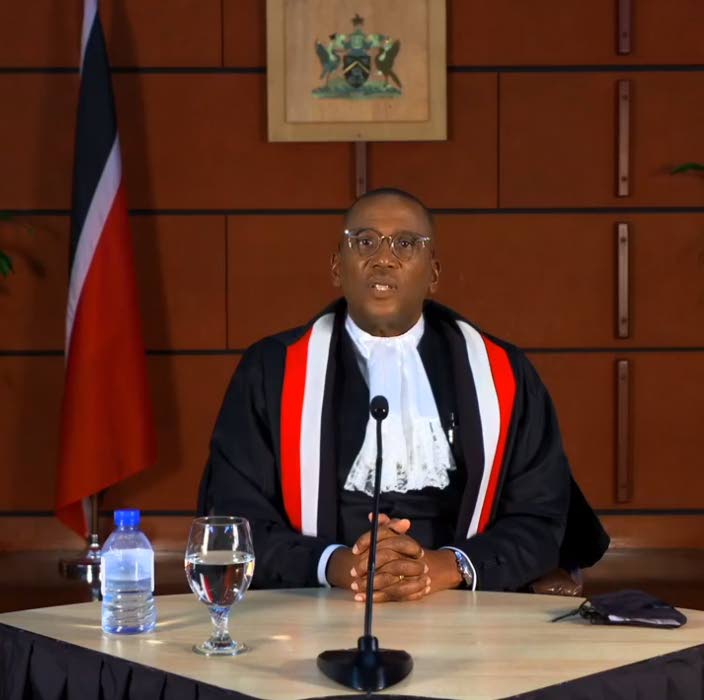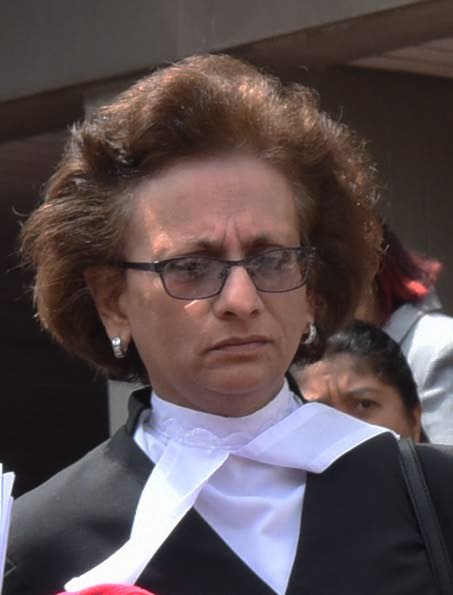Appeal Court: Health Ministry’s public health regulations lawful

A COURT of Appeal has upheld a judge’s ruling on the constitutionality of Government’s covid19 public health regulations, while simultaneously overturning his ruling that the aspects of the regulations which criminalised certain activity at places of worship were unlawful.
In a unanimous decision on Tuesday, Chief Justice Ivor Archie, and Justices of Appeal Mira Dean-Armorer and James Aboud held that the decades-old public health ordinance was protected by the Constitution and the regulations made under it were also protected from challenge.
However, they held that a literal interpretation of the regulations did not have the effect of criminalising breaches of the guidelines.
The judges were ruling on an appeal by five men who mounted a constitutional challenge after they had been held for breaching the regulations; and a pundit who mounted a similar challenge but focused solely on regulation 23, which he contended imposed a criminal sanction for contravention of the guidelines as it related to places of worship.

The Court of Appeal dismissed these appeals but allowed the cross- appeal of the Attorney General on the criminal sanction argument, holding that the judge who declared regulation 23 to be unlawful “fell into error and was plainly wrong” to find that a breach of the guidelines was made a criminal offence.
In September, last year, then High Court judge, now Justice of Appeal Ronnie Boodoosingh delivered his decision in two chases which challenged the public health ordinance and the corresponding regulations.
The cases were brought by Dominic Suraj, Marlon Hinds, Christopher Wilson, Bruce Bowen, and Collin Ramjohn, who were arrested at Alicia’s Guest House in St Ann’s on April 9 and charged under the regulations for gathering in a group of more than five.
The charges against them were eventually dismissed in the magistrates’ court because the police were not ready to prosecute the case although trial dates had been set. The State filed an appeal, which is still pending.
In the other matter, Pundit Satyanand Maharaj, who was partially successful before Boodoosingh with his challenge over regulation 23, had argued that the regulations restricted his constitutional right to freedom of conscience and religious belief and observance. He was never arrested for a breach.
In overturning Boodoosingh’s decision in Maharaj’s matter, Dean-Armorer, who delivered the decision, held that the guidelines were no penal legislation.

The court agreed that while the guidelines should be clear to allow religious leaders to rely on their compliance, even with penal statutes, the law only required sufficient but not absolute clarity.
Dean-Armorer said where the guidelines were not specific, religious leaders can draw on professional advice, in most cases, from members of their congregation or their community.
On the argument of the unconstitutionality of the ordinance and regulations and the savings law clause, she said the ordinance was existing law, and despite the wide powers conferred to the minister under section 105, to restrict and encroach on fundamental rights, the ordinance continued to be valid “until removed by the will of the people in Parliament.”
She said the ordinance had been brought to Parliament on many occasions since 1976, and there was nothing to prevent it from “pruning powers conferred on the Minister of Health, at section 105.”
“The regulation-making power at section 105 of the PHO (public health ordinance) has survived the scrutiny of Parliament on the many occasions when this ordinance was considered and amended by Parliament.
“Accordingly, the PHO is not a statute which has reclined dormant for decades and which simply hides behind the saving law provision. This a statute to which Parliament has been alive and which nonetheless has withstood the test of time.”
In his decision Boodoosingh had said that the regulations conformed to the colonial-age ordinance and were warranted in the current global circumstances.
“It seems to me that public health regulations to prevent the spread of infectious and dangerous disease fall within the narrow compass of exceptional laws which permit a minister leeway to restrict certain of the rights and freedoms under the Constitution,” he said.
He also considered the variations in the regulations based on changes in the situation locally, saying it demonstrated that consideration was given to the impact on citizens.
The regulations were recently amended to restrict gathering of more than groups of five, and in-house dining at restaurants, bars, casinos and cinemas. It also saw the closure of beaches because of an alarming rise in new covid19 infections.
Appearing for the five men and the pundit were Senior Counsel Anand Ramlogan and attorneys Renuka Rambhajan, Jared Jagroo, Ganesh Saroop and Vishal Siewsaran. The Attorney General was represented by Senior Counsel Reginald Armour, and attorneys Rishi Dass, Raphael Adjodhia, Savi Ramhit, Svetlana Dass, Diane Katwaroo.


Comments
"Appeal Court: Health Ministry’s public health regulations lawful"